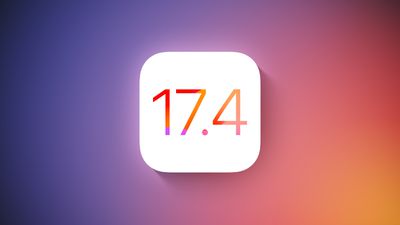Apple has seemingly restricted the functionality of Progressive Web Apps (PWAs) in the latest beta of iOS 17.4, specifically targeting users within the European Union. The move appears to undermine the role of PWAs as viable alternatives to native apps in iOS.

As first flagged by security researcher Tommy Mysk and Open Web Advocacy, the second beta release of iOS 17.4 seems to introduce changes that put web apps at a significant disadvantage in Europe. The new beta version of iOS prevents these apps from launching in their own top-level window that takes up the entire screen, relegating them instead to open within Safari, a change that significantly impacts their user experience and functionality. The move effectively demotes PWAs to mere website shortcuts.
Now, when a user in Europe taps a web app icon, they will see a system message asking if they wish to open it in Safari or cancel. The message adds that the web app "will open in your default browser from now on." When opened in Safari, the web app opens like a bookmark, with no dedicated windowing, notifications, or long-term local storage. Users have seen issues with existing web apps such as data loss, since the Safari version can no longer access local data, as well as broken notifications.
Progressive Web Apps are designed to offer a user experience comparable to that of native apps using web technologies, with the potential for users to add them directly to their home screen with no need for an app store. The latest change is particularly controversial because historically Apple has suggested that developers who are unwilling to comply with its App Store guidelines could instead focus on web apps. Now, the company's recent adjustments appear to contradict this stance by limiting the capabilities of PWAs and their ability to compete with native applications in iOS, raising questions about its commitment to supporting web technologies as a viable alternative to the App Store.
This development comes amid Apple's moves to comply with the European Union's Digital Markets Act (DMA), which aims to promote competition and regulate the practices of digital "gatekeepers." Apple's decision to alter the functionality of PWAs specifically in the EU could be interpreted as an attempt to navigate the regulatory landscape imposed by the DMA, but it may simply want to prevent users in Europe from using web apps with alternative browser engines. The company has not yet commented on its motivations.
There are indications that iOS 17.4 is using SIM carrier information to geo-lock the changes to web app functionality singularly to users in the EU. Web apps in other regions around the world remain unaffected.























